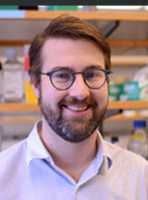
22 Aug Transplanted Lung Stem Cells May Aid in Recovery from Severe Flu
MedicalResearch.com Interview with:

Dr. Vaughan
Andrew E. Vaughan, PhD
Assistant Professor, Biomedical Sciences
School of Veterinary Medicine
University of Pennsylvania
MedicalResearch.com: What is the background for this study? What are the main findings?
Response: Severe respiratory infections, including influenza, can progress to acute respiratory distress syndrome (ARDS), wherein barrier function and gas exchange are compromised. It’s a very life threatening scenario. This is due in part to loss of alveolar type 2 (surfactant producing) and type 1 cells (gas exchanging). Interestingly alveolar type 2 cells are also stem cells in the lung. We wondered whether transplant of these cells might aid in recovery from severe influenza infection, and sure enough, it did!
MedicalResearch.com: What should readers take away from your report?
Response: Transplantation of alveolar progenitor cells might someday represent a therapeutic option for ARDS and other pulmonary diseases. This seems especially feasible if lung progenitor cells are derived from induced pluripotent stem cells from the same patient, thus circumventing any problems with immunogenicity. This of course isn’t a problem for our mouse studies where we used genetically identical mice.
MedicalResearch.com: What recommendations do you have for future research as a result of this work?
Response: I think the obvious question is whether we can transplant human alveolar type 2 cells into immunodeficient mice, and from there whether this might be a tractable approach for treated certain diseased human lungs.
We also believe that by careful transcriptomic profiling of engrafted cells early after transplant, we may be able to identify important pro-regenerative molecular pathways that we can then harness to enhance the repair capacity of pre-existing type 2 cells already present in the lung.
MedicalResearch.com: Is there anything else you would like to add?
Response: One thing I’d like to add is that this methodology has a lot of applicability outside of a potential therapeutic treatment. For basic scientists, we can use this assay to study the multipotency of different lung cell types, or to study how different injury settings impact epithelial cell behavior. Also, our studies show that while we can successfully culture type 2 cells without any type of feeder cell, we’re still not where we want to be in terms of maintenance of appropriate type 2 cell behavior. Future studies that improve type 2 cell organoid culture will be important to grow up the necessary numbers of these cells as a source for cell-based therapies.
Citation:
Aaron I. Weiner, Sergio R. Jackson, Gan Zhao, Kwaku K. Quansah, Joseph N. Farshchian, Katherine M. Neupauer, Elizabeth Q. Littauer, Andrew J. Paris, Derek C. Liberti, G. Scott Worthen, Edward E. Morrisey, Andrew E. Vaughan.Mesenchyme-free expansion and transplantation of adult alveolar progenitor cells: steps toward cell-based regenerative therapies. npj Regenerative Medicine, 2019; 4 (1) DOI: 10.1038/s41536-019-0080-9
[subscribe]
Last Modified: [last-modified]
The information on MedicalResearch.com is provided for educational purposes only, and is in no way intended to diagnose, cure, or treat any medical or other condition. Always seek the advice of your physician or other qualified health and ask your doctor any questions you may have regarding a medical condition. In addition to all other limitations and disclaimers in this agreement, service provider and its third party providers disclaim any liability or loss in connection with the content provided on this website.
Last Updated on August 22, 2019 by Marie Benz MD FAAD
